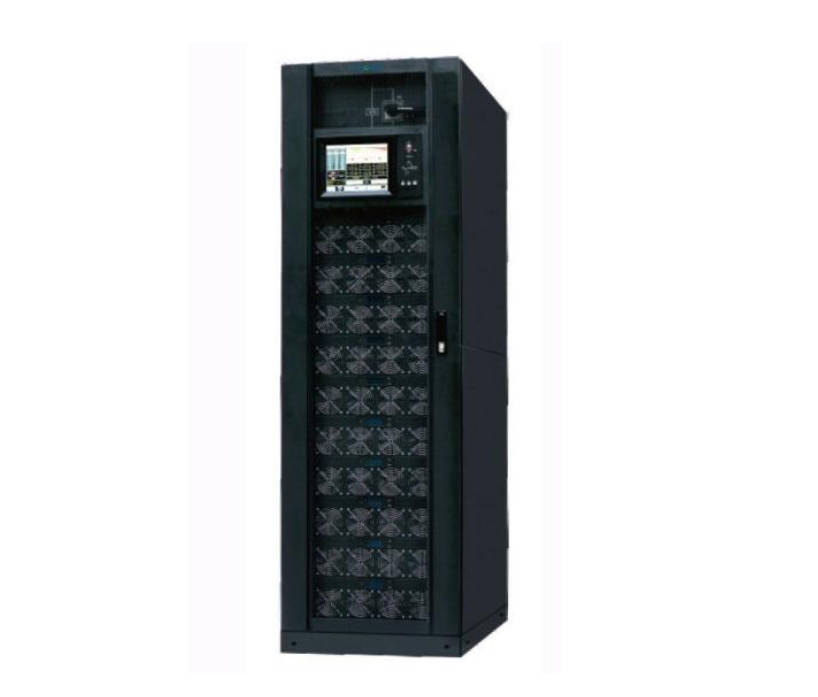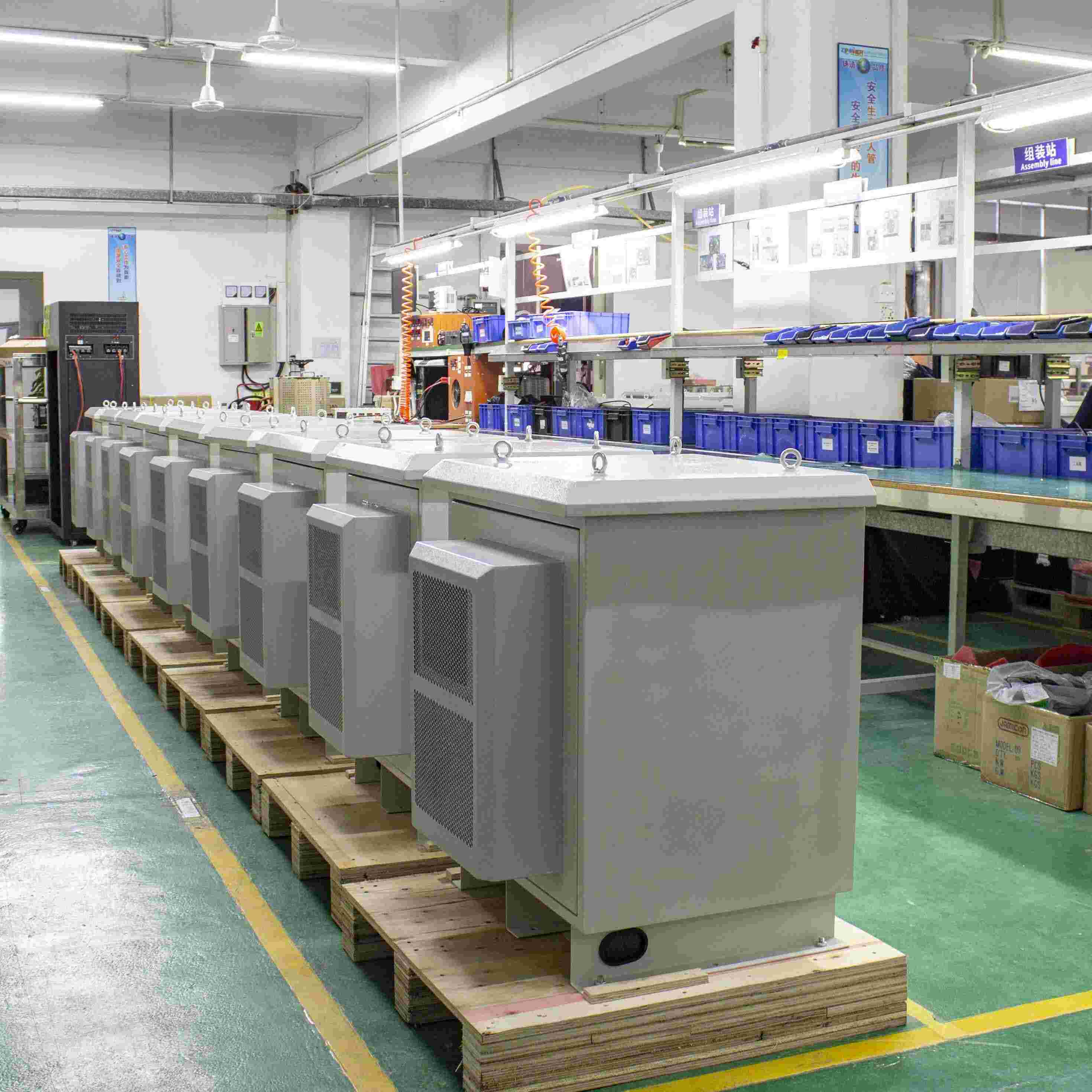

An Uninterruptible Power Supply (UPS) plays a role, in maintaining the stability of power supply for systems by offering backup power during outages to keep operations running smoothly without any disruptions or downtime. To supplying battery power in case of grid failures the UPS safeguards equipment from sudden voltage fluctuations and spikes ensuring the safety of data and hardware integrity. This feature highlights the significance of UPS devices for businesses that depend on power supply for their day, to day functions.
An online UPS ensures power supply to devices its connected to by converting AC power to DC and back, to AC in a cycle.This method of conversion enables power output by simultaneously providing power from the battery while recharging it.Online UPS units are ideal for settings that demand power reliability, like data centers and hospitals where any momentary loss of power could lead to data loss or harm to equipment.
An offline UPS is also known as an UPS. Stays idle until there’s a power outage situation arises. Under circumstances it draws power directly from the source while keeping the battery charged. When it senses a power failure eventuate the offline UPS shifts, to battery power to provide electricity supply. This kind of UPS is usually considered budget friendly and commonly employed for household electronics or small office arrangements where power reliability‘s not an issue.
In a line UPS system it merges elements, from offline setups by drawing power from the main supply while incorporating an automatic voltage regulation (AVR) function for adjusting minor voltage variations without resorting to battery backup mode.This characteristic makes line interactive UPS units ideal for regions experiencing outages or voltage fluctuations.They strike a balance, between cost effectiveness and performance levels catering well to the needs of to sized enterprises.
The functioning of a UPS device relies heavily on its capability to identify power disruptions promptly and react quickly to them. Many UPS systems come with components that keep an eye, on the electricity supply coming in. Once a power outage or irregularity is detected by the UPS system it immediately switches to its battery to ensure a transfer of power. This switch usually happens within milliseconds ensuring that all connected devices continue to receive power and stay functional during the outage.
The time a UPS device can supply power depends on factors, like the model of the UPS system and the size of its battery as well as the power needs of the devices connected to it. Generally speaking UPS systems usually offer power for a minutes, to several hours. For instance a compact UPS meant for computers might only support power for 5 to 20 minutes whereas extensive setups found in data centers can keep things running for longer periods based on their capacity and connected devices power requirements. It is important for users to assess their power needs and choose a UPS that aligns with their requirements for a specific duration. ZLPOWER offers a range of UPS power supply solutions that cater to different industries and power capacities, ensuring reliable backup power when needed.
There are factors that determine the duration for which a UPS device can provide power in case of an outage. One important factor to consider is the load that is connected to the UPS – the greater the number of devices drawing power from it at a given time means that the backup power will last for a duration. Moreover the age and condition of the UPS batteries can also significantly affect its performance during outages. As batteries age they may not hold their charge well as they used to leading to reduced time. In addition, to this the design and efficiency of the UPS unit itself are factors.The newer and advanced models offer energy management capabilities which ensure lasting power supply during times of crisis. It‘s important for individuals to consistently check and upkeep their UPS units to guarantee they work efficiently and reliably when there are power interruptions.
Estimating the duration for which a UPS unit can offer electricity in case of a power outage starts with calculating the power usage of each device linked to the UPS system – typically indicated in watts (W) or volt amperes (VA). By summing up these figures to determine the load supported by the UPS. Considering more, than the equipment, in use is crucial when planning for power outages as you should also take into account any extra devices that might require power to ensure a thorough assessment of power requirements is made.
Users should also make sure they understand the concept of the power factor when it comes to how devices connected to a UPS use power. To get results, in their calculations it‘s an idea to refer to the UPS specifications, on its load capacity. By knowing the details of power usage users can pick out the UPS device for their needs in case of a power outage.
After determining the power usage needs and evaluating backup requirements accordingly comes the task of finding an UPS device from the range of options, in the market to match those needs effectively. Each UPS unit comes with a capacity typically measured in volt amperes (VA). Users are advised to select a UPS that can support their estimated load while also accommodating a buffer to prevent system overload. To ensure performance it is suggested that the total connected load should not surpass 80% of the UPSs designated capacity.
When choosing a UPS device it‘s important for users to take into account the battery runtime details given by the manufacturer in order to understand how long the UPS can sustain a load before its batteries run out of power. By consulting these timeframes users can better decide which UPS device suits their needs, for operation in case of power failures. Selecting a UPS that meets the users backup duration criteria is essential to guarantee protection, against power interruptions while avoiding the risk of equipment shutdown.
To gain a grasp of how long backup power can last from a UPS device is, by considering real life situations and examples as illustrations for clarity purposes. For instance in a small office setting where devices like computers and networking equipment collectively consume around 300 watts of power; A proper UPS unit with a 1000 VA rating is usually able to sustain the load for 15 minutes, under conditions—giving users ample time to save their work and properly shut down their devices should there be a power outage scenario.
In setups like data centers or large facilities, the power needs can be quite high, sometimes reaching up to 5000 watts or more. In such cases, it is crucial to have an UPS system with batteries that can provide several hours of backup power supply. This ensures that servers and essential network gear can continue running smoothly even during long power outages. It is important to accurately determine power usage and select the right UPS specifications to ensure sufficient backup time. ZLPOWER offers UPS systems that are designed to meet these requirements.

When choosing a UPS unit it‘s important to team up with a supplier to guarantee the effectiveness and durability of the power solution you select.Many options are available, from ZLPOWER to cater to requirements.Their UPS systems are designed with top notch quality in mind to deliver performance during regular power outages.Customer service plays a role, in ZLPOWERs offerings. Their experienced staff is dedicated to assisting customers in choosing the UPS that meets their individual needs perfectly. It is worth noting that ZLPOWER also offers other products such as Solar inverters and Energy storage power solutions.
Moreover ZLPOWER provides warranty plans and post purchase assistance having customers believe in the durability of their products.Their wide service network and accessible resources enable clients to depend on help whenever needed.In addition ZLPOWER offers tailored solutions to suit power requirements and preferences.Opting for ZLPOWER as a provider ensures that users can guarantee their investment results in power supply during possible blackouts sustaining the integrity of data and operational effectiveness.